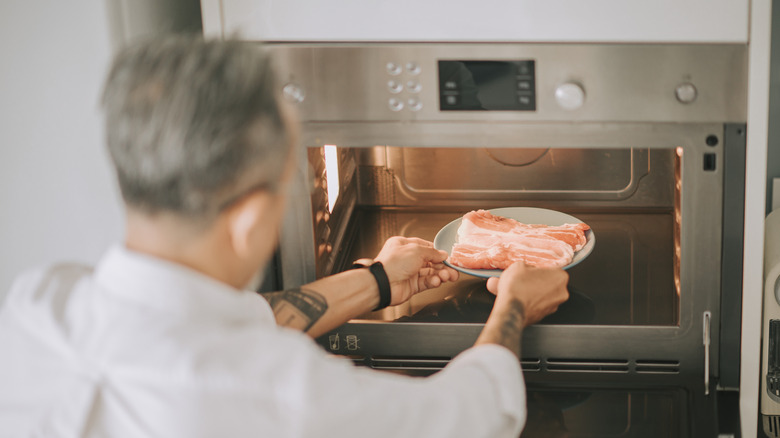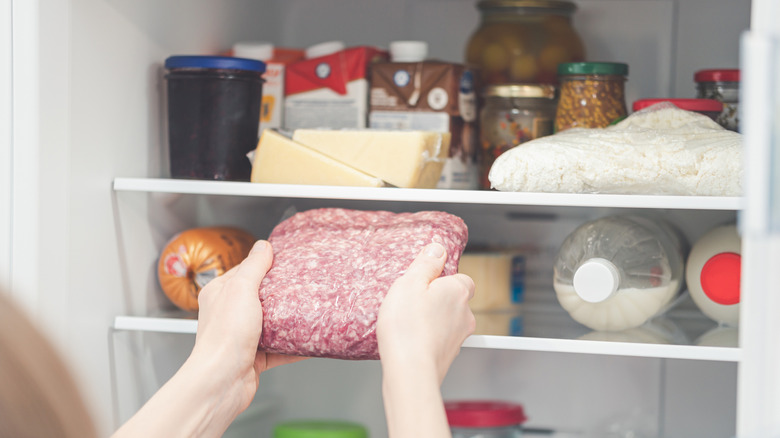
If you forgot to thaw your meat and it’s dinner time, you might consider using the microwave to speed up the process—especially since it has a defrost setting. But is it advisable?
Professor Costas Stathopoulos, a food scientist from Abertay University in Dundee, advises against this practice. On the British TV show “Inside the Factory,” he mentioned to host Cherry Healey, “It is really not the best of techniques,” highlighting the risk of harmful bacteria thriving in improperly thawed meat (via Daily Mail).
The U.S. Department of Agriculture (USDA) states it is not necessarily unsafe to cook raw meat in the microwave, as long as it is cooked immediately afterward. They explain that while defrosting, some parts of the meat may start cooking. Partially cooked meat isn’t safe to store because it might have reached temperatures that encourage bacterial growth. Immediate cooking will kill any harmful bacteria, though.
Microwaved frozen meat also doesn’t taste as good

Beyond safety concerns, Jess Pryles, star of “Hardcore Carnivores” and holder of a Graduate Certificate in Meat Science from Iowa State University, notes another reason to avoid microwaving frozen meat: the “weird” flavor. She refers to this unpleasant taste change as “warmed over flavor,” resulting from lipid oxidation, where the fat in the meat turns rancid during cooking.
There are also potential texture issues. Jacob Tuell, Ph.D., an assistant professor at Northwest Missouri State University, explained to The Spruce Eats that microwaving causes water molecules in the meat to vibrate and generate heat. “Due to its high moisture content, microwaving heats the product very quickly,” Tuell notes. “However, this process also alters protein structures, affecting texture.” The outcome? Meat that is tough and rubbery.
The best way to thaw frozen meat

To ensure your meat is both safe and tasty, the USDA recommends thawing it in a refrigerator. Planning ahead is necessary, as this could take at least 24 hours—or longer for larger items like a turkey. This method prevents your meat from reaching temperatures where bacteria thrive.
For quicker thawing, the USDA suggests using cold water. Place the meat in a leak-proof package and submerge it in cold tap water, changing the water every 30 minutes until thawed. Meat thawed this way should be cooked immediately.
As previously noted, microwave defrosting is safe if followed by immediate cooking. The USDA also advises that meat thawed in this manner must be cooked before refreezing.
Finally, the USDA provides the option of cooking without prior thawing. This is safe, but it may take approximately 50% longer than cooking thawed meats.




